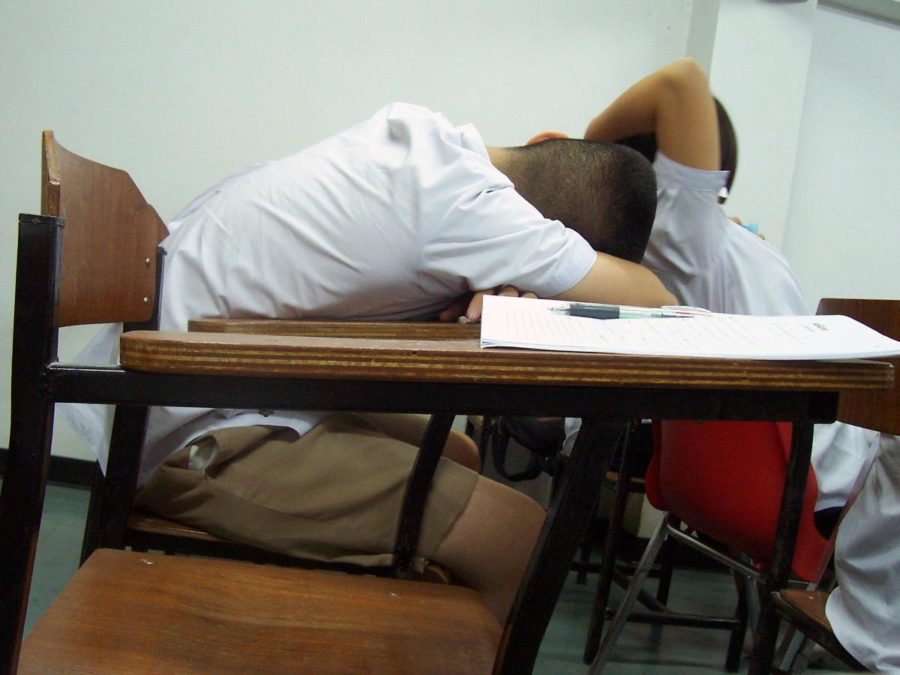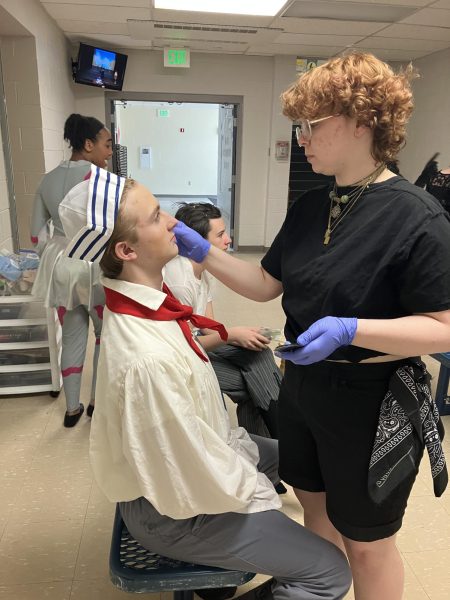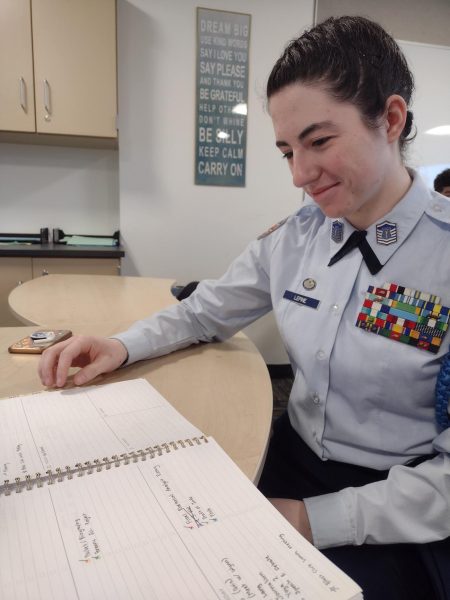The Issue with Sleeping in Class
According to National Public Radio, 20 percent of students sleep in class on a typical day.Many Air Academy teachers notice that sleeping in class can affect work, how the student processes assignments, and keeps the students from working at their best level.
In classes, when students sleep it causes them to miss important material in class affecting how they process the work put in front of them.
Freshman Lit and Comp teacher Pearl Sonnenschein notices the challenges.
“It can affect how they follow the directions and the quality won’t come out as well because they’ll miss key points,” she said. “Sleeping in class decreases the quality of the work they turn in because when they sleep, they sleep through what’s needed to be heard by the teacher to make the work better.”
Does sleeping set a bad example for other students around the student that is sleeping? According to math teacher Mindy Hall, the results are mixed.
“Yes and no. Some students will see others sleeping [and] will try to follow, and no because some students communicate to the teacher their points of view of sleeping and stay awake for the material,” she said.
So, what do teachers do to keep students awake?
Hall said, “I help by waking students up but don’t do more than communication to the student when it won’t interrupt my teaching.”
Sonnenschein noted, “After 1-2 times of verbally having the student wake up, [I] will let the student sleep because if they don’t wake up, they’re missing material by choice.”
Both teachers do try to give students a chance to stretch.
Senior Curtis Bolenbaugh admits he sometimes sleeps in class.
“It doesn’t affect the quality of my work because I’m taking easy classes and all the work I miss is online,” he said.
Bolenbaugh discussed how his grades can be affected by sleeping in class.
“If I forget to look back I can miss assignments, but what I miss is always available to me,” he said.
For tips on how to get a good night’s sleep to avoid sleeping in class, The American Academy of Sleep Medicine offers the following tips:
- Follow a consistent bedtime routine.
- Establish a relaxing setting at bedtime.
- Get a full night’s sleep every night.
- Avoid foods or drinks that contain caffeine, as well as any medicine that has a stimulant, prior to bedtime.
- Do not stay up all hours of the night to “cram” for an exam, do homework, etc. If after-school activities are proving to be too time-consuming, consider cutting back on these activities.
- Keep computers and TVs out of the bedroom.
- Do not go to bed hungry, but don’t eat a big meal before bedtime either.
- Avoid any rigorous exercise within six hours of your bedtime.
- Make your bedroom quiet, dark and a little bit cool.
- Get up at the same time every morning.

I am a journalist at AAHS, I enjoy skiing and writing in my free time. I also enjoy spending time talking to Friends and making fun out of stuff that is...













